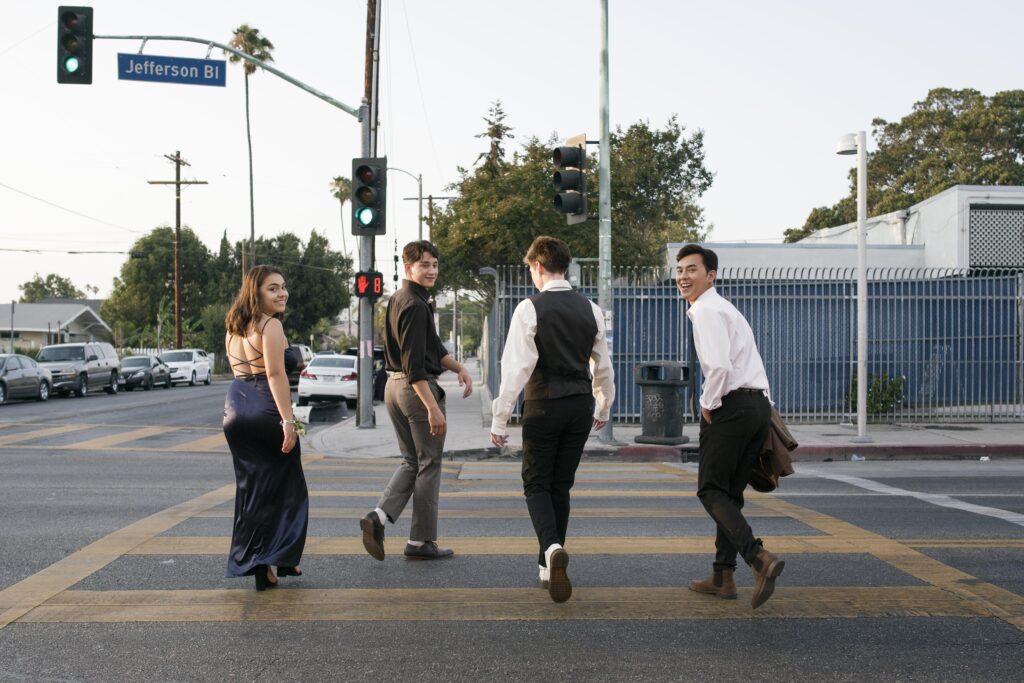The law treats each type of assault differently. This article reviews the six common types of assault charges.
What is an assault?
Under California Penal Code Section 240, an assault is an intentional attempt to cause injury to another person. Even if the only assailant threatened to violently injure the victim but did not follow through, it is still considered to be an assault. An assault can be committed with or without the use of a tool.
Types of Assault
1. Simple Assault
Simple assault is the attempt to injure another person.
The penalty is up to six months in jail and up to $1,000.00 in fines. Simple assault is a misdemeanor.
An example of a simple assault is the assailant threatening to harm the victim and then punching the victim in the stomach without the use of a tool or weapon.
2. Verbal Assault
A verbal assault is when a person makes a threat to violently injure another person. The threat may or may not be carried out, but the threat is enough to induce fear in the victim. A video or audio recording of the verbal assault is not needed but will help to prove that the victim was verbally assaulted.
Verbal assault is considered to be a wobbler when it comes to penalty – it can be either considered to be a misdemeanor or a felony. If the verbal assault is considered to be a misdemeanor, the penalty is up to six(6) months in jail and up to $1,000.00 in fines.
An example of a verbal assault is one person leaving a voicemail threatening bodily harm to the victim.
3. Aggravated Assault
In our article titled, “Understanding Aggravated Assault vs Assault in California”, we explored the differences between an aggravated assault and a simple assault.
An aggravated assault requires the attempt to and threat of force in order to violently injure the victim. An aggravated assault requires the use of a tool in order to inflict bodily harm.
The penalty for aggravated assault is up to four(4) years in prison or one(1) year in jail and/or up to $10,000.00 in fines.
An example of aggravated assault is intentionally injuring the victim with a brick.
4. Assault With A Deadly Weapon
A weapon, under California law, includes a deadly object, a firearm, or a knife. In our article, “Assault with A Deadly Weapon [PC 245]”, we explored the different penalties for the different types of firearms. California makes a differentiation between a machine gun and a semi-automatic firearm.
The penalty for assault with a deadly weapon can either be a misdemeanor or a felony. If the crime is considered to be a felony, the penalty is up to four years in prison or one year in jail and/or up to $10,000.00 in fines.
Suppose the crime is against a peace officer or a firefighter in the middle of conducting his official job duties, in that case, the penalty carries up to eight years in prison if the assailant uses a firearm. Read “What Are The Penalties Of Assaulting A Police Officer? PC 241(c)” to learn more.
5. Vehicular Assault
Vehicular assault falls under the umbrella of assault with a deadly weapon. Vehicular assault is the attempt to injure someone with the use of a vehicle. The attempt must be willful and intentional. Even if the victim is uninjured as a result of the assault, it is still considered to be a vehicular assault.
The penalty for vehicular assault can either be a misdemeanor or a felony. If the crime is considered to be a felony, the penalty is up to four(4) years in prison or one(1) year in jail and/or up to $10,000.00 in fines.
Since the driver utilized a vehicle improperly and dangerously, the DMV may penalize the driver as well which can include the revocation of the driver’s license.
An example of vehicular assault is a person intentionally driving into a pedestrian crossing the street.
6. Sexual Assault
Under California Penal Code Section 243.4, sexual assault is the unwanted and unconsented touch of an intimate body part by another individual through force. The penalty for vehicular assault can either be a misdemeanor or a felony.
The penalty is a fine of up to $2,000.00 and/or up to one year in jail or a fine of up to $10,000.00 and/or up to four years in prison.
An example of sexual assault is someone grabbing another person’s buttocks without permission.
Defenses against assault charges.
An assault can carry a hefty penalty if the defendant is convicted. A criminal defense attorney can argue that the defendant is not guilty of the crime charged before the jury. The defendant’s individual situation and circumstance will dictate the type of defense.
The following are a few defenses the attorney can make.
- The victim falsely accused the defendant. For example, in a verbal assault case-
let’s say the victim has computer-generated a recording of the defendant verbally assaulting the victim. The criminal defense attorney can argue that the verbal assault charge was fabricated. Proof that the victim falsely accused the defendant can be brought up at trial to strengthen the defendant’s argument. - There was no intent to cause harm. For example, in a sexual assault case-
let’s say the victim consciously consented to the sexual interaction but later regretted this choice. Regret does not mean that the defendant committed a crime. The defendant did not intend to harm the victim and only acted because of their mutual consent.
Therefore, the defendant did not sexually assault the victim. - The defendant acted in self-defense. For example, in a vehicular assault case-
let’s say the victim approached the defendant with a weapon while the defendant was stopped at a red light. The defendant was in a vehicle. To protect himself against the victim, the defendant drove when the light turned green and hit the victim. The criminal defense attorney can argue that the defendant acted in self-defense by using the vehicle to protect himself.
Seek the help of an expert criminal defense attorney!
If you or your loved ones are facing assault charges, don’t wait for the situation to get more complicated. Seek the help of an experienced assault and battery attorney. David L. Faulkner has expertise in numerous criminal defense cases. Let’s make a difference in your case!










